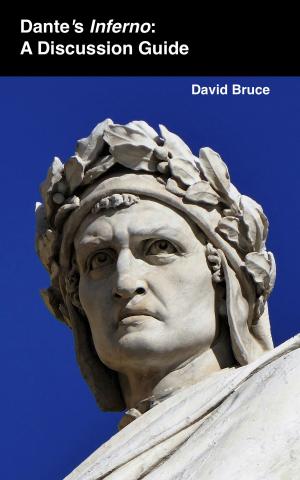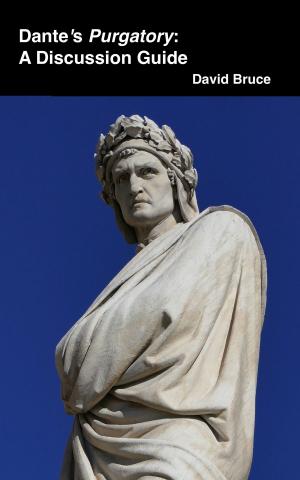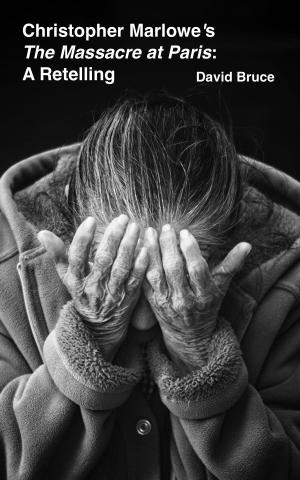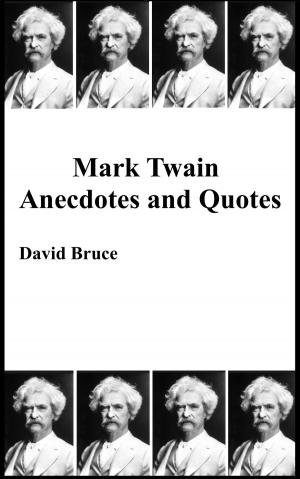| Author: | David Bruce | ISBN: | 9781465830258 |
| Publisher: | David Bruce | Publication: | November 27, 2011 |
| Imprint: | Smashwords Edition | Language: | English |
| Author: | David Bruce |
| ISBN: | 9781465830258 |
| Publisher: | David Bruce |
| Publication: | November 27, 2011 |
| Imprint: | Smashwords Edition |
| Language: | English |
Some samples: 1) Police officers in small towns with little crime sometimes come up with creative ways to keep from being bored. In Fort Fairfield, Maine (population 4,300 at the time of this incident), a police officer discovered a chicken roosting on his police car. The police officer arrested the chicken for such crimes as criminal trespass, criminal mischief, resisting an officer, indecency (the chicken was naked), and littering. On the official crime report, the police officer wrote down the chicken’s name as Cee Little. Later, the police officer explained, “It started out as a joke and shouldn’t have gone as far as it did, but in a town like Fort Fairfield, you have to do something to keep from going crazy.” (The day following the arrest, the chicken was released into the custody of a person who liked to eat eggs.) 2) Maureen Stapleton was afraid of flying, and on a cross-country trip she sat next to friend and fellow actor Eli Wallach and held his hand. At one point he told her that he had to go to the restroom, and she told him, “All right. Let’s go.” She held his hand as she walked with him to the restroom, then waited outside. When he left the restroom, she held his hand and walked with him back to their seats. She then told him, “Buckle up—and no more bathroom privileges for you.” 3) Cheerleaders can be role models for young children. For example, the first graders at a Catholic school idolized the cheerleaders who were in the eighth grade. In fact, at one recess the first graders imitated the older cheerleaders. One first grader led the chants: “Give me a B … give me a Q … give me an R … what’s that spell?” Since none of the first graders knew how to spell yet (and since the letters in fact did not spell a word), one first grader answered, “I don’t know!”
Some samples: 1) Police officers in small towns with little crime sometimes come up with creative ways to keep from being bored. In Fort Fairfield, Maine (population 4,300 at the time of this incident), a police officer discovered a chicken roosting on his police car. The police officer arrested the chicken for such crimes as criminal trespass, criminal mischief, resisting an officer, indecency (the chicken was naked), and littering. On the official crime report, the police officer wrote down the chicken’s name as Cee Little. Later, the police officer explained, “It started out as a joke and shouldn’t have gone as far as it did, but in a town like Fort Fairfield, you have to do something to keep from going crazy.” (The day following the arrest, the chicken was released into the custody of a person who liked to eat eggs.) 2) Maureen Stapleton was afraid of flying, and on a cross-country trip she sat next to friend and fellow actor Eli Wallach and held his hand. At one point he told her that he had to go to the restroom, and she told him, “All right. Let’s go.” She held his hand as she walked with him to the restroom, then waited outside. When he left the restroom, she held his hand and walked with him back to their seats. She then told him, “Buckle up—and no more bathroom privileges for you.” 3) Cheerleaders can be role models for young children. For example, the first graders at a Catholic school idolized the cheerleaders who were in the eighth grade. In fact, at one recess the first graders imitated the older cheerleaders. One first grader led the chants: “Give me a B … give me a Q … give me an R … what’s that spell?” Since none of the first graders knew how to spell yet (and since the letters in fact did not spell a word), one first grader answered, “I don’t know!”















